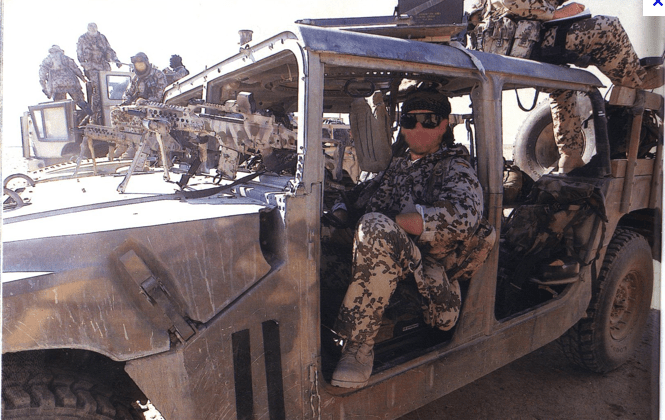The top Special Operations unit of the German military has once again been rocked by a right-wing scandal.
Last month, German law enforcement officers, in conjunction with the German military intelligence agency (MAD), raided the residence of a sergeant major who was assigned to the Kommando Spezialkrafte (KSK), the Tier 1 Special Operations unit of the German military. They found smuggled explosives, weapons, and ammunition. The senior non-commissioned officer was arrested and promptly kicked out of the unit.
Brigadier General Markus Kreitmayr, the commander of the KSK, wrote a letter to his troops, cautioning that “In the midst of our community, there were and obviously still are individuals who have been and still are part of the so-called right spectrum.” He warned that those with such affiliations will be kicked out of the unit.
The infiltration of right-wing extremist into the German military in general, and its Special Operations units in particular, is by no means novel. Last December, SOFREP reported that German counterintelligence had uncovered three operators with far-right affiliations.
Now, Eva Högl, a German politician with the Social Democratic Party (SDP), has been assigned to lead a task force that will deal with extremism in the German armed forces.
In her inaugural speech, she highlighted that albeit the German military as a whole neither encourages nor allows for extremism – regardless of its affiliation – within its ranks, there seems to be an institutional issue, considering the frequency of cases.
“We must also look at what we have to do to change the structures so that such attitudes do not spread and to strengthen those soldiers who oppose them,” said Högl.
Christof Gramm, the chief of MAD, stated that his agency has identified 14 servicemembers with extremist ties who are in the “red category,” meaning that they are dangerous to public security. Out of those fourteen, ten were identified as right-wing and four as Islamists.
The German military is comprised of about 184,000 troops and 81,000 civilians.
The KSK was established in 1996 to serve as the tip of the spear of the German military. It’s the country’s Tier 1 Special Operations unit and a rough equivalent to the American Delta Force and British Special Air Service (SAS). The KSK specializes in Direct Action (DA), Special Reconnaissance, and Counterterrorism (CT) missions. The unit has seen action in Afghanistan (the KSK was one of the first Coalition Special Operations units to join the American-led campaign to hunt down al-Qaeda) and Africa (KSK elements are currently operating in the Sahel combating the Islamist insurgency in the region; their presence in Mali, in particular, was recently extended until 2021).
According to several reports, the Department of Defense (DoD) is looking to withdraw approximately 10,000 troops from Germany, a move that will reduce the American military presence in the European country to about 25,000. The troops, if the withdrawal is approved, will be move elsewhere in the Continent, according to a White House official who spoke to the Associated Press.
With the DoD’s suggestion to withdraw a large chunk of American troops from Germany, a decision that comes a few months after the last British unit left the central European country, the German military is bound to come under further scrutiny, and, particularly, its capabilities.










COMMENTS